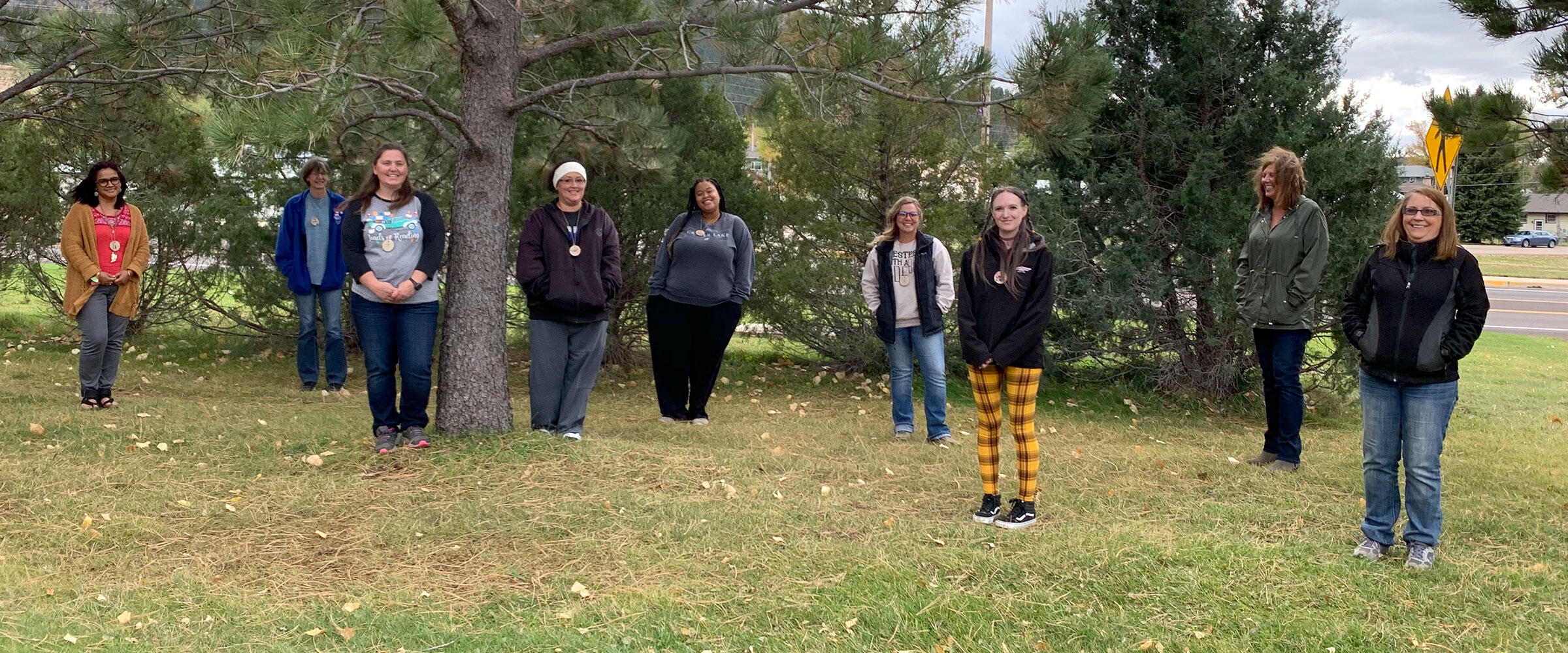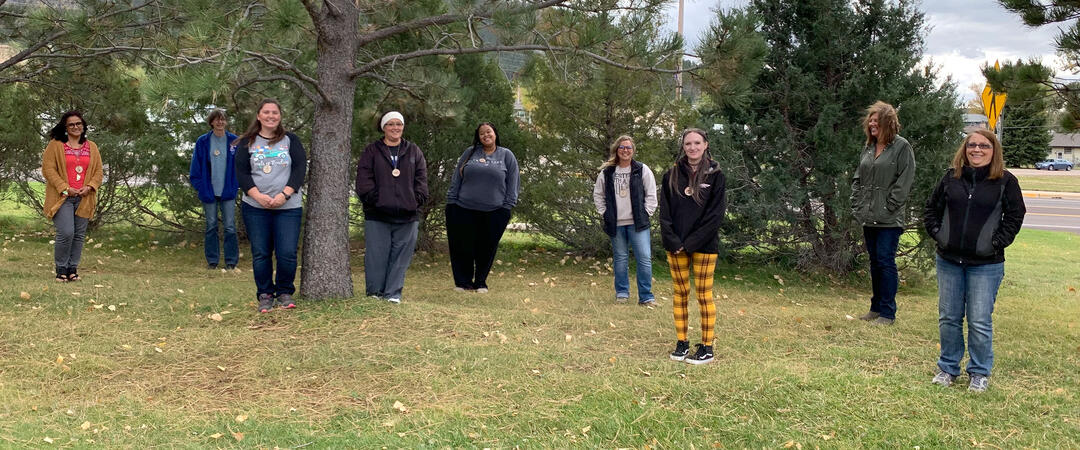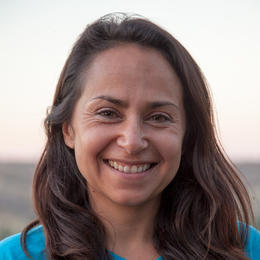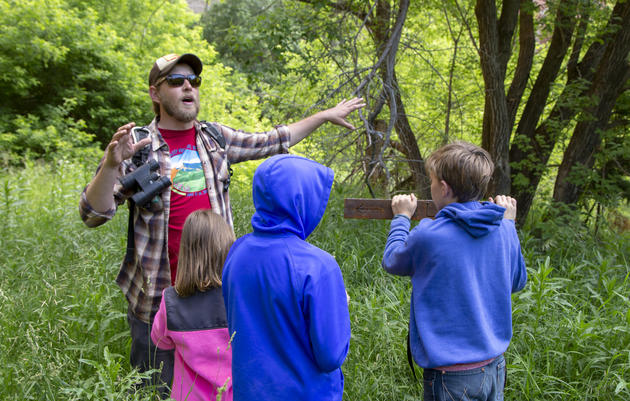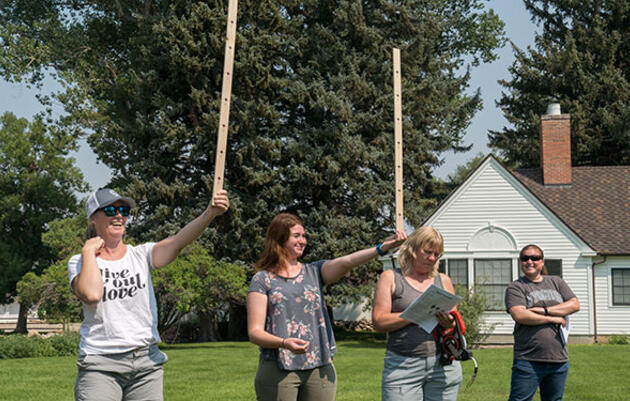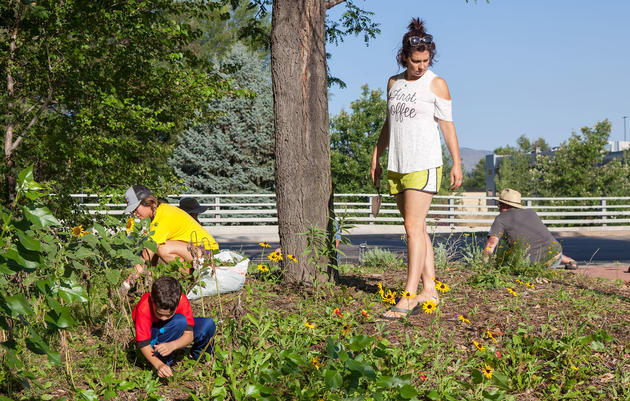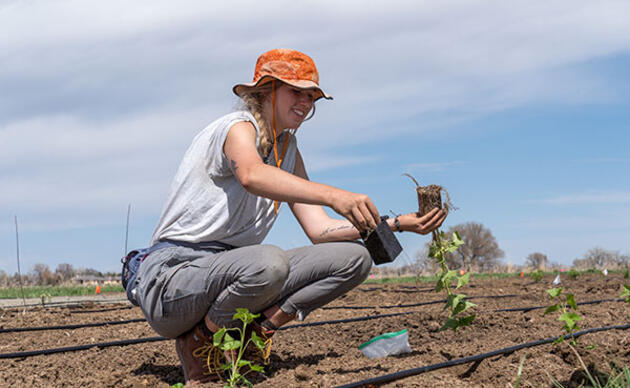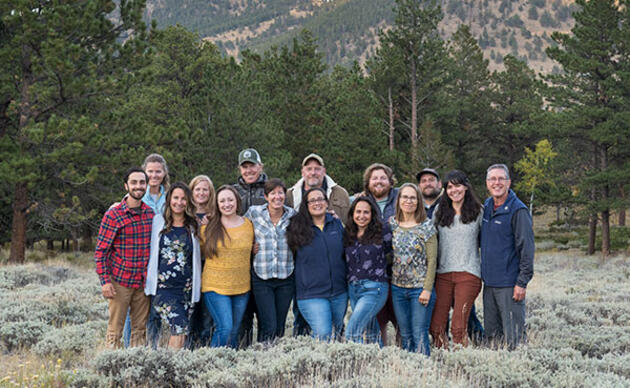Those who work with children in a daycare, a classroom, or as a substitute are required by most states to participate in some form of professional development each year to retain their teaching credentials. Many non-formal educators also seek to receive professional development to help bolster their outreach efforts. To meet these needs, Audubon’s Community Naturalists have been trained to facilitate PD workshops through Project Learning Tree, Project Wild, and Project WET. These organizations have created curricula for educators that focus on getting youth outdoors to learn about science using wildlife, trees and habitat, and water as their subjects. Most importantly for teachers, they are aligned with state and national education standards.
Audubon Community Naturalists typically host at least three workshops each year, reaching more than 60 educators. Each of those 60 educators often have a reach of at least 20 youth, resulting in 1,200 youth who then see the benefits of the training. It’s a great way to maximize our reach. Teachers who engage in these trainings are more likely to feel comfortable taking their class outdoors on a field trip or just to use it as an outdoor classroom. They are also more likely to incorporate nature and science into other disciplines such as art, language arts, and math.
They also gain a treasure trove of resources such as classroom supplies, lesson plans, and an amazing array of ideas to get youth excited about science. What’s more, they get to interact with and learn from other educators. These workshops are in high demand because, unlike some PD offerings, they are high-energy, interactive, and fun.
Of course, all this got turned on its head last spring as in-person events were canceled or postponed. Despite this, teachers still needed to be able to gain access to PD to retain certification.
In fact, we had partnered with a local college to provide a workshop for a group of pre-service elementary education students. It was written into their curriculum, which meant it was a requirement for them to complete our training in order to graduate!
With no prior experience in providing on-line training using these materials, I created one and enjoyed doing so. It was even true to Project Wild, Learning Tree, and WET’s standards and protocols for an immersive and engaging experience.
In March, I had partnered with the state coordinator for Wyoming Project Learning Tree to hold a workshop for early childhood educators. It was one of a long line of events that were put on hold, so I was elated when the rescheduled fall date loomed and it appeared that we would be able to go through with it. However, we did have to make numerous changes to how we normally set up the workshops, such as providing extra space to allow for social distancing and eliminating shared supplies and materials.
At first it seemed like a huge responsibility to create a space that was not only welcoming but also safe. Despite all this, I’m happy to report that we all had a wonderful time. Seeing people interact in a way that was both unguarded and collaborative was such a restorative experience.
In the end, I feel incredibly fortunate to have taken part in organizing both the virtual and in-person events. Like so many people, I was skeptical of all this technology and the virtual experiences that were forced upon us this year. I am an outdoor person and I prefer informal gatherings where I can talk face-to-face with small groups of people. So many of my personal and professional choices were made based on those two facts. I scoffed at the idea that you could re-create virtually what was meant to be in-person.
After working through these unexpected challenges, I now know that using new technology and doing things in a modified and less-than-ideal manner is not so scary, and it can even be fun. What’s more, after holding the in-person workshop, I know for certain that this time of upheaval is not going to last forever and we are hopefully moving into a normalizing period.
Even though we may find ourselves right back where we were again, we now have the skills, tools, and confidence to face whatever hurdle comes our way. We all have so many more opportunities to say yes now. For me, it’s, “Yes, I can provide a workshop to your rural school district employees. Yes, I can provide your teachers with a video training on the sagebrush ecosystem. And yes, I can even host a tutorial on how to do a fun virtual science experiment on zoom with your whole class.”
In other words, in providing educators with meaningful professional development, I inadvertently created my own.

